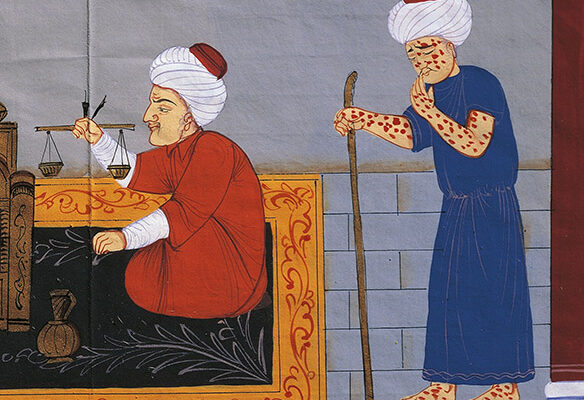From checking blood pressure at an outpatient clinic to the use of diathermy in the operating theatre, there is a vast range of devices that are used by patients and clinical staff in hospitals. Yet have you thought about who manages and looks after these devices?
From checking blood pressure at an outpatient clinic to the use of diathermy in the operating theatre, there is a vast range of devices that are used by patients and clinical staff in hospitals. Yet have you thought about who manages and looks after these devices?
Clinical Engineering or Medical Devices is a sector within healthcare that is one of the least understood areas by the majority of people.
Many people have asked me what this profession involves or what we actually do in a hospital. And coming across a variety of similar questions in the past few years, I realised how not many people were aware of what this technological world is all about.
First of all, speaking generically, I would like to remind you that engineering is quite inclusive and vital in our everyday life – whether it is the electricity that keeps us all warm on a cosy winter evening, water that gets delivered to our taps within seconds of just a rotation or if it is just a simple chair you would use to sit and pay attention in a class.
Technology and physics encompass our everyday lives these days and what more important than implementing such developments in the healthcare system? Looking historically, we have come a long way – and there can still be opportunities for even more development and improvements.
From checking blood pressure at an outpatient clinic to the use of diathermy in the operating theatre by surgeons or the use of ventilators by patients in ITU, there is a vast range of devices that are used by patients and clinical staff in hospitals. Yet have you thought about who manages and looks after these devices? What happens when the equipment breakdown?
Working as a medical engineer involves understanding a piece of medical equipment inside out, using your knowledge and analytical skills to solve any problems that may arise or for just a yearly routine check. Although at times working can feel a bit of routine, reading and learning about the mechanism and functionality of every device increases our understanding and makes us more motivated to carry out our work diligently. Also, after all, our Prophet Muhammed (SAW) has said to seek knowledge even if you have to go as far as China.
Having in mind that the equipment being worked on will be used by someone’s dear parent, family member, or friend, makes you want to work thoroughly and with full concentration.
Imam Ali (A.S) has said to live for this world as though you’ll live forever and work for the afterlife as though it’s your last day. This saying stays with me almost every day as this shows that Prophet and his family have always encouraged us to develop and perfect ourselves in anything we do.
So next time you’re in a hospital for an appointment, don’t forget to move your eyes around and familiarise yourself with the various medical equipment in the setting.
Muslim Heritage in the Medical Field
Historically, in many fields, the Muslim world has been a pioneer in inventions that are being used globally. Some of these inventions that are currently being used in the healthcare sector are:
- The basics of any medical device or just any equipment – batteries! The battery is said to be invented in around present-day Iraq around 2000 years ago. The very first battery was said to be made of a clay jar with an asphalt stopper. Through this asphalt part, an iron rod surrounded by a copper cylinder was inserted. When filled with any electrolytic solution such as vinegar, the jar produces 1.1 V
- A Turkish engineer Al Jazari invented a system where rotary motion is converted to a linear system. This mechanism is used in many systems including syringe pumps where a rotary motor is used to push syringes for drug delivery in patients.
- Al Zahrawi, an Al-Andalus-based physician, is said to have invented various surgical tools. Although these inventions are surgical tools rather than medical equipment, these are currently still used in surgeries today!
How To Explore The World Of Biomedical Engineering
As a biomedical engineer, you would need good practical skills (that are usually developed whilst working) and a good foundational knowledge of mathematics, physics, and biology – the preferred subjects at sixth form if considering medical engineering at university.
There are various universities that provide a BEng medical engineering course. When deciding on which universities to apply to, read through the course structure before confirming as some degrees are more medical electronics based while some are more tissue engineering related.
In your spare time, always try to read more about whatever you are working on even if you may think that it is quite basic, as you never know this knowledge can help you later, years down the line.
Being a biomedical engineer does require some patience. We should always strive to do better but sometimes not everything goes according to plan. If things do not work out, understand that ‘…But they plan and Allah plans, surely Allah is the best of planners’ (8:30).
And finally, never think that what you are working on is not important as the end user is always a patient and the work done can hopefully make a difference to their life. As Allah says in the Holy Qur’an, ‘..whoever saves a life is as though he had saved all mankind’. (5:32)
The world of engineering is always evolving, and the awareness of this field is more now than ever, thanks to the STEM network! Anyone can be the next pioneer, given you have a thirst for knowledge, dedication, practice, and the will to make a difference. Not to forget, faith and heaps of patience!





